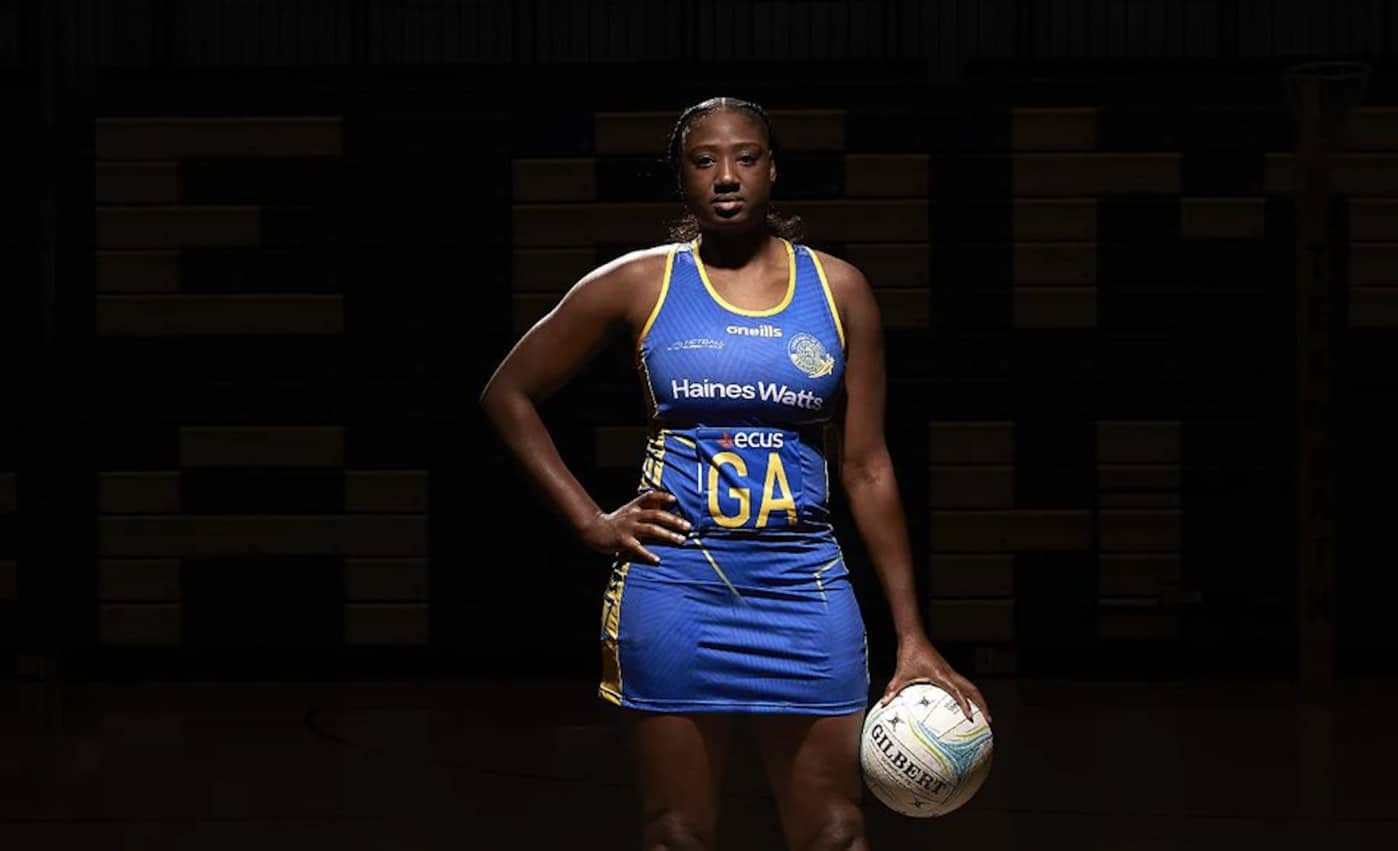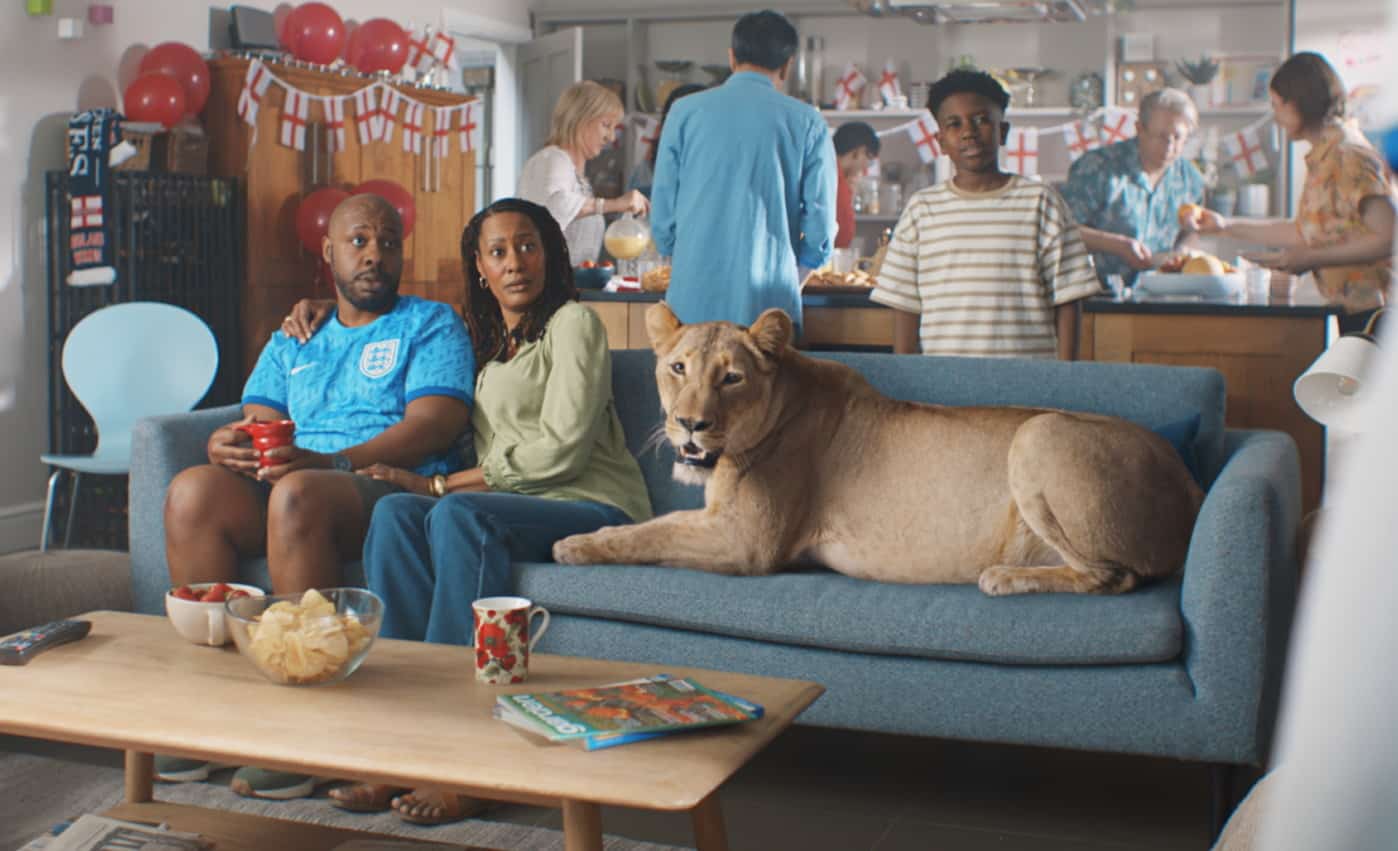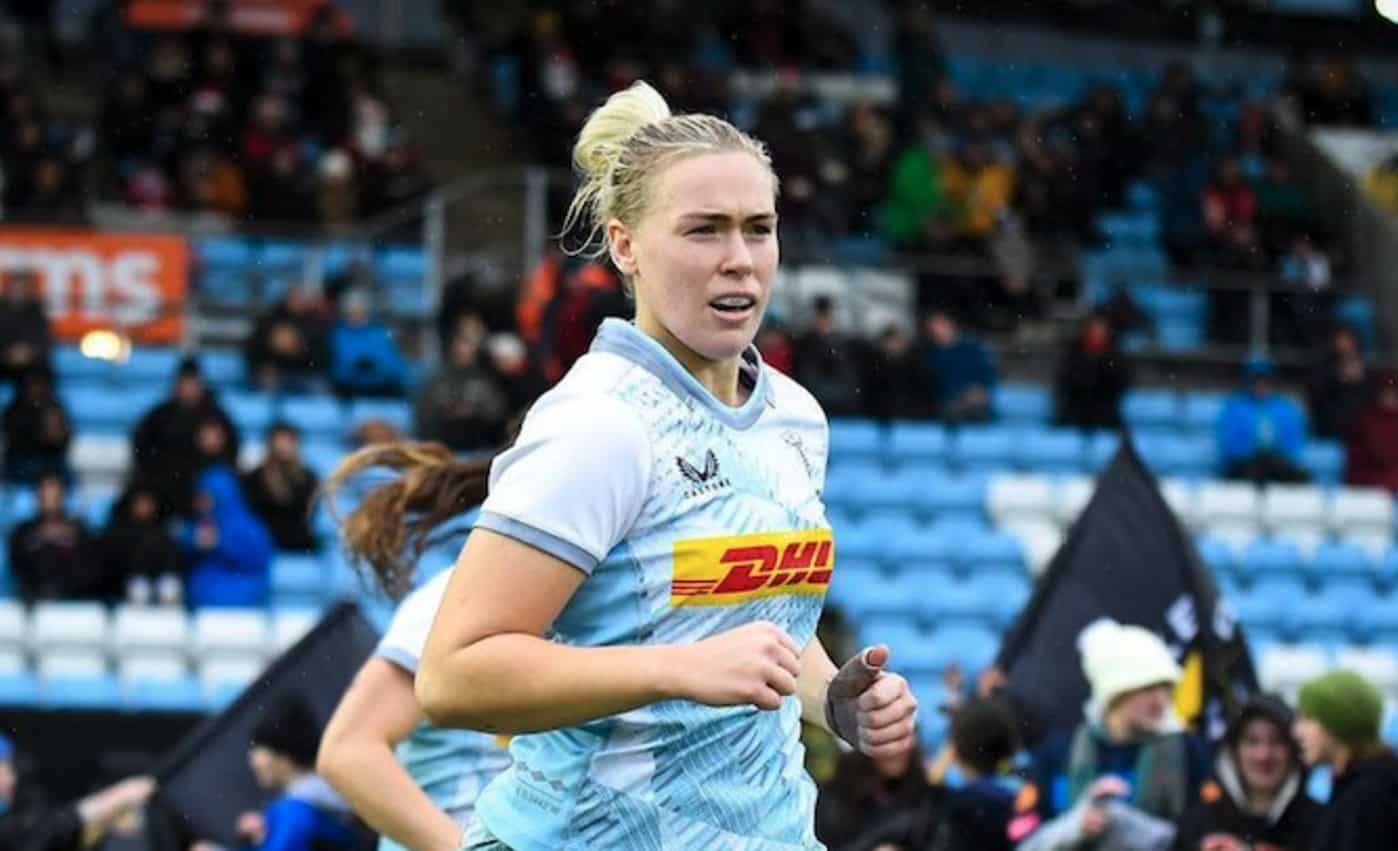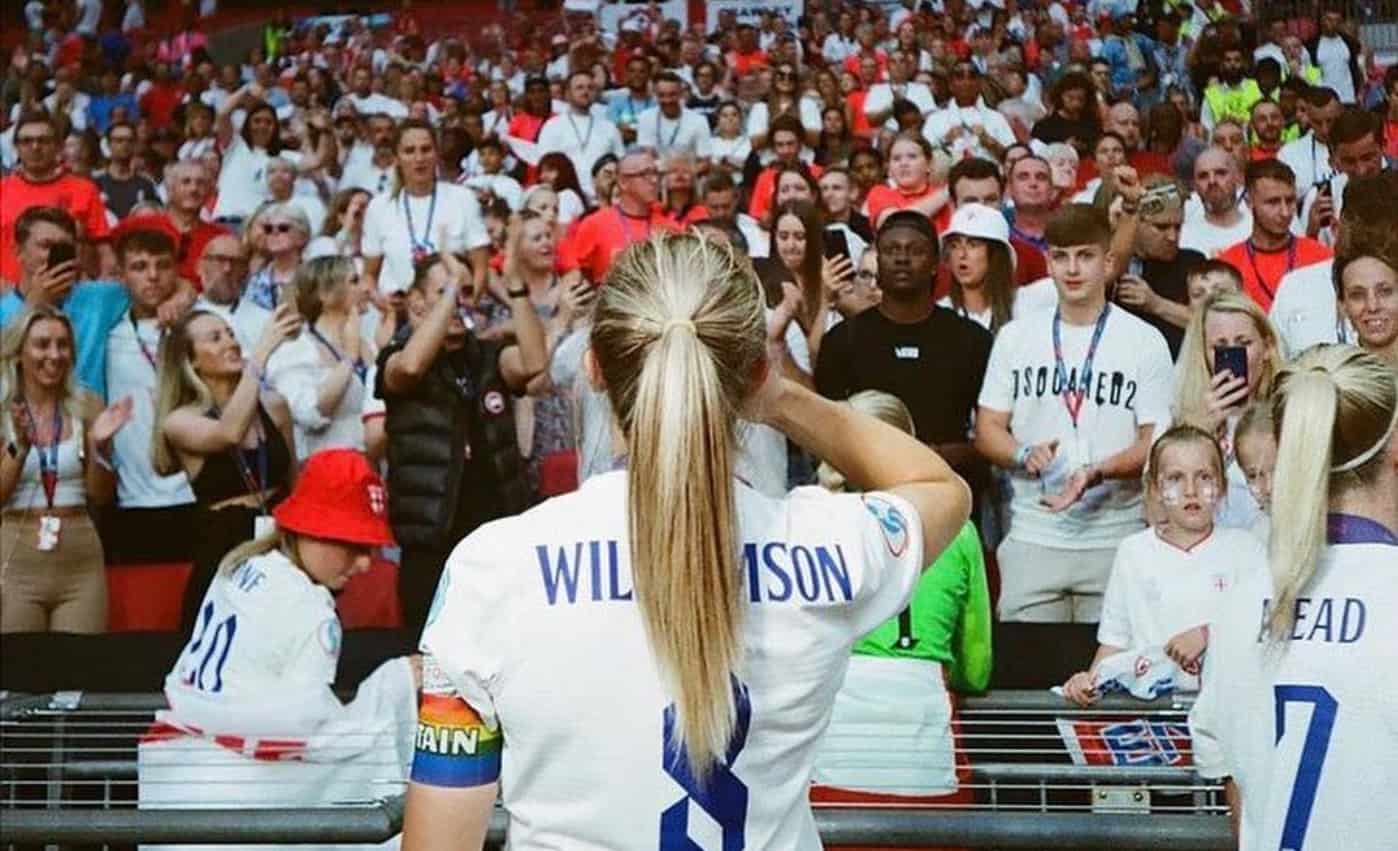There’s a band of elite British sportswomen currently battling it out in the southern hemisphere to be world champions. And no, we’re not talking about the Lionesses.
The 2023 Netball World Cup started on 28 July in South Africa and will run until 6 August. It is the 60th anniversary and the 16th staging of netball’s biggest tournament, which is contested every four years, and marks the first time Africa has hosted.
Across ten days, 16 nations will compete across two group stages before taking part in the playoffs and placing matches.
At the time of writing, England (ranked third in the world) had already made it into the semi-finals (taking place on Saturday 5 August, ahead of the final the following day) with one game still to play in the group stages, and taken the win against world number one side Australia for the first time at a World Cup. Wales and Scotland are also battling to maintain or improve their world rankings against strong opposition from almost every corner of the globe.
The main competition stems from the Australian team, New Zealand (reigning champions), Jamaica (Commonwealth Games 2022 silver medallists) and South Africa (world number five and with the home advantage).
Netball is hugely popular in the UK – in England specifically it’s the top one women want to participate in. It holds unique power as a female-first sport (as opposed to women’s football, rugby and cricket) and offers a world of marketable stars such as England’s own Helen Housby (176K Instagram followers, Nike athlete, RSPCA ambassador, gold medal-winning shooting star).
However, even during the premier world netball competition, it feels as if only a few dedicated fans are shouting about it.
Key takeaways
- The Netball World Cup started on 28 July but fans have criticised the lack of attention it’s receiving and the quiet build-up
- The tournament has been broadcast in its entirety on Sky Sports and, since stage two, also free-to-air on the BBC
- Despite this TV coverage, the news hasn’t necessarily broken out of the netball enthusiast bubble, as promotion has been muted
- Netball participation in the UK is high, from playing at school or university to social netball leagues, county teams, back-to-netball clubs, walking netball, wheelchair netball and, more recently, mixed and men’s teams
- #Netball has 1.7 billion TikTok views and more than 900,000 tagged Instagram posts
- The audience is there, the demand is there, the engagement is there, the elite sportswomen are there – so where is the attention and the brand deals?
- Author, journalist and netball fan Natalie Morris tells CORQ about the sport’s unique strengths, the personalities who could front any campaign and why she thinks misogyny is behind many of the issues the sport faces
Some social media users have noted that unless you’re already a big netball fan, you wouldn’t have even known the tournament was on, let alone that every game is being broadcast in the UK by Sky Sports, which held exclusive rights to the opening weekend, and that every game since has been available on the BBC.
Barbara Slater, BBC Sport director says: “We are delighted to be showcasing the Netball World Cup 2023 free to air across the BBC. As a big supporter of women’s sport, we want to bring it to the widest audience possible. With great home nation representation, we’re hoping for plenty of drama and memorable matches.”
A BBC spokesperson tells CORQ that in addition to the broadcasts, the organisation has been covering the tournament across the BBC Sport website and its social pages, as well as promoting the fixtures in its BBC Sport newsletters.
Although this coverage is a huge plus, fans can’t help but wonder what could have been if the tournament had been better promoted in the run-up: high-profile campaigns, engaging adverts, influential partnerships – akin to what England’s football Lionesses received ahead of their competition.
It’s a vicious circle: limited promotion means fewer viewers tuning in, which in turn limits justification to increase marketing spend. In the eyes of the media and brands, perhaps netball is also the victim of the Lionesses’ more recent and momentous success at the 2022 Euros – all attention is focused in one direction. But netballers, netball fans and future netball fans deserve more.
You may also like
Social media, organic and sponsored content analysis
At the previous Netball World Cup, held in Liverpool in 2019, more than 100,000 tickets were purchased for the tournament, with a total of 6.07 million people attending, watching or following the event.
On TikTok, #netball has 1.7 billion views, #netballworldcup has 5.5 million and #NWC2023 has 17.3 million. Meanwhile, on Instagram the same hashtags have been used for 907,082, 14,805 and 6,354 posts respectively.
According to CORQ data analysis, the top ten pieces of most engaged organic content about netball during the past 12 months were a mixture of player and fan Instagram posts.
First place goes to nutritionist Charlotte Stirling-Reed, who shared how much she misses playing netball since becoming a parent (4.7% engagement rate), followed by England’s most capped player Jade Clarke looking forward to the start of the World Cup (4.5%), entrepreneur Vickie Neave celebrating her daughter balancing the sport with her university degree (4.5%), and England Rose Chelsea Pitman on the eve of competition (4.5%).
Next is former England and current Barbados player Sasha Corbin charting her team’s progress throughout the tournament (4%), Scottish Thistles coach and Sky Sports pundit Tamsin Greenway onsite in South Africa with Pamela Cookey, Caroline Barker and Sara Francis-Bayman (4%), and writer Marina Fogle sharing her relationship with sport (3.9%).
Rounding out the top ten is England captain Natalie Metcalf posting about the squad heading to South Africa (3.8%), yoga teacher Olive Walton sharing her favourite ways to exercise (2.7%), and journalist Paula Joye reminiscing on her daughter’s birthday about the time they spent together while she was growing up (2%).
Meanwhile, the top Netball World Cup posts came from Sasha Corbin’s sister Kadeen announcing their move to the Bajan Gems team (3.6%), and Tamsin Greenway evaluating her team’s performance against England (3.4%) and taking on a football challenge with England netballer Laura Malcolm ahead of the FIFA Women’s World Cup (1.4%).
When it comes to sponsored content, lifestyle Instagrammer Milly Pickles comes top, discussing her new ambassador roles for Under Armour Women and JD Women (2.5%), followed by photographer Susanna Hawkins sharing her weekend routine (1.9%) and Sasha Corbin partnering with Green Chef (1%).
Many of the posts that received the most engagement focus on the idea of playing a sport that makes fitness fun, the way netball engrains itself in family relationships (particularly the mother-daughter bond) and the joy and support provided by being part of a team – all themes that would transfer well to a broad range of campaigns.
Brands and media “missing a trick” with netball
Author and journalist Natalie Morris can well understand these themes, having started playing netball at primary school and risen through the ranks to county teams, university club captain and even “flirting with” England selection camps.
“Playing netball was the highlight of my time at university and when I moved to London the first thing I did was google a local netball club, and I’ve been there 11 years now,” she tells CORQ.
“It gives me the structure I need, it’s an incredible form of mindfulness and it gives me a reason to go to the gym beyond the aesthetics, which I find really boring. I love going to the gym and thinking I want to get faster and I want to jump higher and I want to win netball games next season. My teammates are some of my closest friends and we play for each other and we train for each other and I think that’s rare in adulthood to find.”
The sport is also very inclusive, she adds. “There’s not one kind of body type that you have to have in order to play netball and that goes for every level of the game, from grassroots right up to the international stage, which isn’t something you see in many other sports. I think that’s one of its real strengths and when I’m playing netball or training with my team, that’s when I feel the most confident in my body and the most empowered.”
Morris praises the BBC’s coverage of the World Cup, which includes expert analysis and post-match interviews, but says the lack of attention elsewhere remains a disappointment.
“I was really taken aback by how quiet it’s been. We are one of the best teams in the world at netball and we’re massively missing a trick here. We won the Commonwealth Games in 2018 and that’s not that long ago. We should be capitalising on the momentum from that incredible moment in history but it feels like we’ve gone backwards since then,” Morris says.
“It’s painful because I just wonder how many times we’re going to have to prove ourselves. England is consistently performing and medalling and it’s just not being recognised. It feels like we could win every single competition multiple times and it wouldn’t be enough. There’s a different problem going on here, which is just sexism and misogyny – because it’s a women’s sport and doesn’t have a male version, people are just less interested.
“To continue to have to justify our existence as an elite sport just gets boring. People still have these outdated archaic misconceptions of netball being like it was when you were at primary school. But actually it’s really dynamic, it’s fast paced, it’s athletic.”
Netball’s USP as a sport by women for women shouldn’t be a shortcoming but the opposite, she points out. The English stars of the game – Helen Housby, Eleanor Cardwell, Chelsea Pitman, Imogen Allison, Funmi Fadoju – all have stories to tell and are open about the unique experiences they have had as women playing elite sport, from pregnancy to motherhood, miscarriages, periods and sports bras. They represent a limitless pool of opportunity for brands and campaigns.
And it’s not just the local players who can inspire – Uganda’s Mary Cholhok, who plays for Loughborough Lightning in the UK Netball Super League, overcame huge adversity to become one of the best shooters in the world.
“The netball supporters are incredibly engaged, they live and breathe the sport. Most people who watch netball also play it or used to play it or have daughters who play it, so these are not just casual fans, they are incredibly willing to engage with it,” Morris says.
“They will watch everything, they will spend their money and go to games. They are starved of coverage and acknowledgment so anytime there’s netball on the TV or in the press, they will be super hyped and they will share it and engage with it.
“Netball is the kind of thing you want to pass on to the next generation and watch with them. So it feels like a no brainer for me, for people to be putting that investment into engaging with these fans.”
For brands, the message should be clear: the influencers, audience, demand and engagement already exist. Stepping out of your vertical has never been so important or so rich in opportunity.
The netball family is passionate and well-connected, with enthusiasts jumping online to discuss the latest global netball news, regardless of timezone. If brands can engage with the scene in England, what follows? Break the UK, break Australia, New Zealand, Jamaica, South Africa and more.
By Lauren Harris, CORQ editor. Picture credit: England Netball via Instagram










